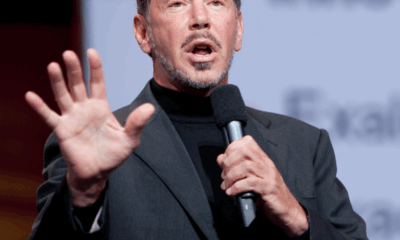Business
Crucial summit set for EAC Monetary Union

Kenya and Rwanda at Mombasa this year will have to convince their colleagues from TZ and Burundi to sign a fast-tracked monetary union this weekend” align=”left” width=”410″ height=”200″ />Alliance of the willing; EAC Presidents for Uganda, Kenya and Rwanda at Mombasa this year will have to convince their colleagues from TZ and Burundi to sign a fast-tracked monetary union this weekend
The monetary union is a fundamental step in the ongoing integration process between the five countries despite recent reports of tension among member countries largely stemming from the pace of integration. After skipping or sidelined for several meetings, Tanzania’s President Jakaya Kikwete is expected to attend. His presence will breathe new oxygen in the union.
The EAC Deputy Secretary General in charge of Planning and Infrastructure Dr. Enos Bukuku told reporters recently that all countries fully support the union. The meeting in Kampala over the weekend is supposed to set the date for the start of the common currency.
However, experts have warned of serious implications to the economies of the region, especially if remaining stumbling blocks to trade are not removed such that goods and services are exchanged freely.
Bank of Uganda governor Tumusiime Mutebile told a consultative workshop of East African Legislative Assembly on the East African Monetary Union held in Kampala on 9 September 2013 that while the union promised long term benefits for all of the economies in the EAC, also entails considerable risks.
“A successful monetary union is only possible if each partner state is prepared to accept the pooling of its economic sovereignty. Many economic decisions which are now made at the national level will have to be made at the regional level,” said Mutebile.
He added: “If we do not build the requisite foundations for monetary union, the introduction of EAMU may actually harm our economies. The problems which are currently being experienced by some of the peripheral members of the Euro zone – Greece, Portugal and Spain for example – which have lost competitiveness on international markets and can no longer use exchange rate depreciation to restore their competitiveness, should provide a salutary lesson to everyone involved in planning for the introduction of the EAMU.”
Mutebile added: “A genuine single market in the EAC, without any restrictions on the movement of goods, services or factors of production, is an essential foundation for EAMU for two reasons. First, the benefits of monetary union to the partner states are positively correlated with the amount of trade between the partner states and the degree of integration of their economies. Unless there is very substantial trade within the EAC, there will be only minor benefits to be derived from a common currency. East Africa will not be able to attain the fullest degree of economic integration which is possible until all of the artificial barriers to intra-regional trade and to the movement of factors of production within the EAC have been abolished.”
There is however a sense among the general public that politicians are pushing their people into the process that they are not yet full conversant with.
On a lighter note, The Sunrise has reliably learnt the Ugandan government with the help of the police forcibly removed all posh cars from its civil servants, except ministers, to be used for chauffeuring dignitaries here for the EAC Monetary union summit.
A reliable source told Sunrise that civil servants, selfishly fearful of sending ‘their’ vehicles to such an event where it would be mishandled, had started leaving them at home claiming that they had mechanical faults.
Having observed similar behavior during previous big meetings, top decision makers stationed police officers along main roads who stopped the vehicles and directed the drivers to deposit them at the airstrip in Kololo.
Comments


















